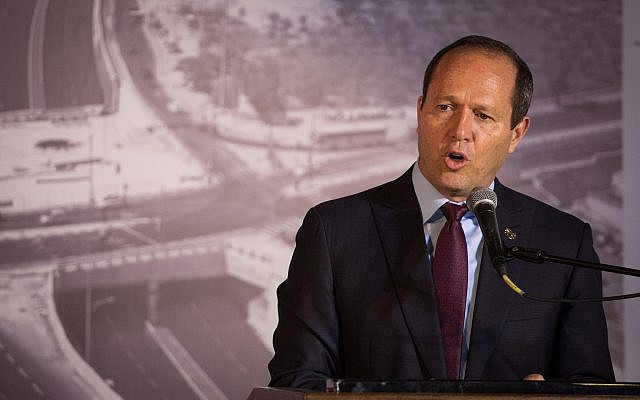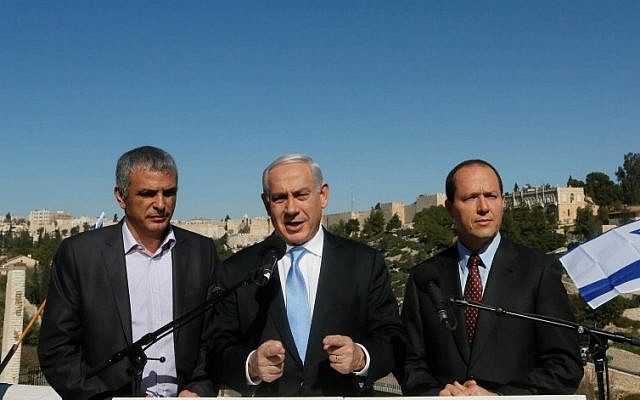Municipality says Nir Barkat will announce his decision on Thursday after passing embattled city budget

Nir Barkat is expected to announce this week that he will not be seeking a third term as Jerusalem’s mayor, and that he will instead run for the Knesset on the Likud party ticket.
Barkat, a longtime backer of Prime Minister Benjamin Netanyahu, has dropped numerous hints at a possible Knesset run since joining the ruling party in 2015.
On Tuesday, the municipality addressed rumors of the mayor’s political aspirations, saying in a statement that Barkat would “announce his decision” after the municipal budget is passed Thursday.
The statement went on to say that Barkat on Thursday “intends to pass Jerusalem’s highest-ever budget, thanks to the support of government ministries.”
Barkat has been embroiled in an increasingly public feud with Finance Minister Moshe Kahon over the city’s budget for several months.
Barkat claims that the Finance Ministry has been withholding hundreds of millions of shekels from the municipality in an effort by Kahlon to settle a score with the mayor, who supported Netanyahu in the last elections instead of him.
Kahlon, a former minister in Netanyahu’s Likud party, established the Kulanu party as a socially conscious version of Likud, winning 10 seats in the 2015 elections.

As part of the campaign to receive an increased “capital grant,” Barkat announced early this year that the city would have to scale back key municipal services and fire thousands of workers. He also launched a billboard campaign funded by the city to pressure Kahlon to agree to up funds for the city, and paid with his own money for weekend newspaper ads against Kahlon.
On Tuesday, the Haaretz daily reported that Barkat ordered the anti-Kahlon billboards removed in preparation for his announcement.
Barkat has retained relatively high popularity in a city comprised of religious, ultra-Orthodox and secular Jews, as well as Palestinian residents of East Jerusalem. Secular residents are seen to have made some recent gains in the ongoing culture war over the city’s identity.
A major in the IDF reserves who earned a fortune at the start of the Israeli high-tech boom in the 1990s, Barkat entered politics in a failed bid for Jerusalem mayor against ultra-Orthodox candidate Uri Lupoliansky in 2003.
After serving as head of the opposition during Lupoliansky’s term, Barkat again ran as the secular candidate in the 2008 municipal elections, beating out ultra-Orthodox candidate Meir Porush. He was reelected in 2013.
As reported by The Times of Israel
